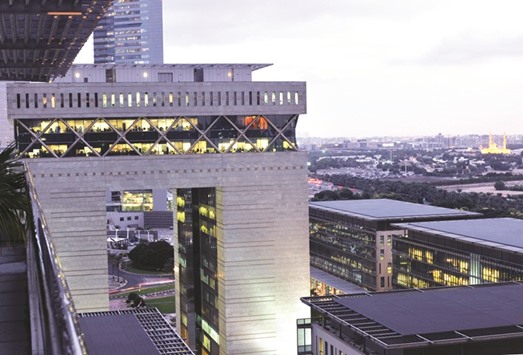Dubai International Financial Centre (DIFC), which offers tax exemptions and its own judicial system, is expecting to attract similar numbers of new companies in 2016 as last year despite market volatility.
The state-owned free zone, the major finance centre in the Middle East, welcomed 309 new companies in 2015, up almost 28% from the year before, with growth among financial services firms swelling by 13%, DIFC data showed.
Set up in 2004, the blend of towers and low-rise offices has pulled in international banks, insurance companies and investment firms keen to benefit from a 40-year guarantee of zero taxes on corporate income and profits.
DIFC, which also has an independent regulator, contributes around 4% of the emirate’s economy. “We are not immune to short-term market fluctuations, but as far as this year is concerned we are confident that we can achieve what we did last year,” DIFC governor Essa Kazim said in a press conference yesterday.
He said around 50% of companies that registered last year were from the so-called south-south corridor, an area encompassing Africa, South America, the Middle East and Asia, that DIFC is expecting ever larger business demand to flow from.
There was a healthy pipeline of companies wanting to register in the DIFC, said Kazim. DIFC is currently home to about 1,445 companies.
Possible newcomers include two big Chinese banks, which were in the process of obtaining licences, said Chirag Shah, executive vice president of strategy and business excellence at the DIFC Authority.
Four Chinese banks are already operating branches in the free zone and had in total doubled their balance sheet to $20bn in the last 18 months, said Shah.
Oil prices have remained weak since June 2014, causing liquidity to tighten in the region and prompting several local banks to cut staff.
But DIFC’s total workforce — which includes those in finance as well as other sectors — rose by 11% from 2014 to 19,808 in 2015.

Office workers are seen illuminated at dusk as they sit inside the Dubai International Financial Centre (file). Set up in 2004, the blend of towers and low-rise offices has pulled in international banks, insurance companies and investment firms keen to benefit from a 40-year guarantee of zero taxes on corporate income and profits.
